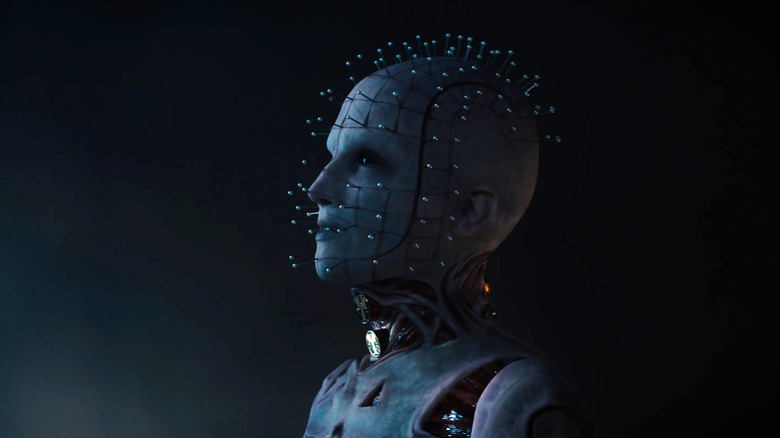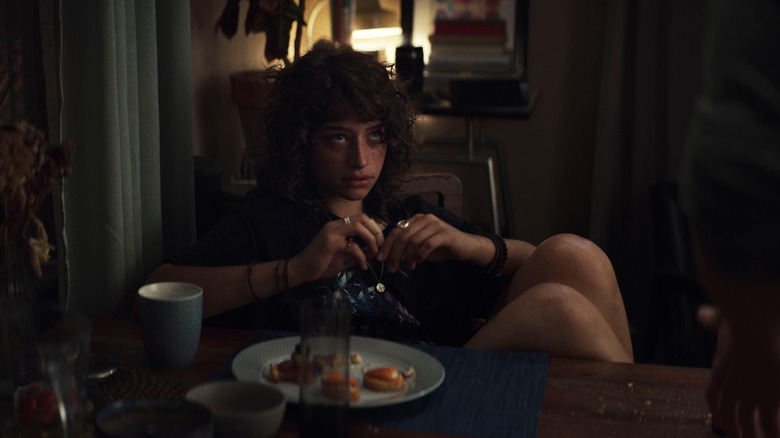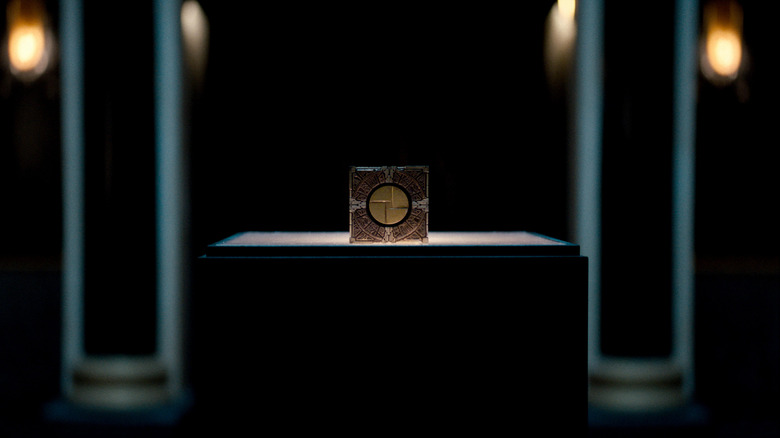Hellraiser Review: The Reboot Is A Step Up For The Franchise, But Is That Enough? [Fantastic Fest]
In 1987, Clive Barker unleashed "Hellraiser," his stylish, artistic, gooey, kinky horror pic adapted from his own novella, "The Hellbound Heart." The film became a big hit and introduced audiences to the cenobites, a group of S&M creatures — angels to some, demons to others — who are summoned from untold dimensions by a puzzle box to offer people unspeakable pleasures and pain. The leader of the group, Pinhead, instantly became iconic, and when that sort of thing happens, sequels follow. Sure enough, a total of 10 films came out of the "Hellraiser" world, each more disappointing than the last. The series became dire, taking unused scripts for thrillers and clumsily shoe-horning Pinhead into the mix. Worse: the sequels also completely betrayed what made Pinhead and his cenobite pals so memorable. In the first and second films, which were shot back-to-back, Pinhead and his gang aren't necessarily evil demons from hell. They're otherworldly beings who get off on extreme pain. And if they dragged a few people to their death in the process, well, that was okay, too.
But as the series progressed (or regressed would probably be the better word), Pinhead changed into a Freddy Krueger-style slasher, spouting one-liners and stalking people like a common serial killer. Over the years, as the franchise grew worse, there was plenty of talk about a potential remake, or reboot, or reimagining, or whatever you want to call it. Now, it's happened (this is actually one of two reboots on the way; there's a TV series headed to HBO Max, too). Pinhead is back, now played by Jamie Clayton, our first female Pinhead. This idea isn't so far removed from the source material — the character that appears in "The Hellbound Heart" is described as androgynous, with a feminine voice. David Bruckner, who helmed the recent, and very scary "The Night House," is at the helm here, and that's a promising idea. Bruckner's "Night House" had a certain "Hellraiser"-vibe to it, complete with its obsession over physical structures and shapes that can be used to summon things from another world. So when I heard Bruckner was the one to bring the new "Hellraiser" to life, I perked up. With the franchise in such dire straits, bringing in someone like Bruckner could only be a step-up, right?
The answer: yes. How could it not? And yet ... Bruckner's "Hellraiser" still feels lacking, although not for lack of trying. Pinhead and the new cenobites here are effectively scary and strange — but good look trying to see them for most of the film. They all have slick new designs, but the film is so murky and dark that you might need to boost your TV brightness. Barker's original film trafficked in darkness, too. But we could still see what the frig was happening on the screen. The real issue with Bruckner's "Hellraiser," however, is that it often feels kind of generic. I don't even love Barker's original film all that much, but it felt different. Barker was never the best filmmaker, but he knew how to create an otherworldly atmosphere that stuck in your brain. I can't say the same for what Bruckner is doing here. On top of that, the inherent kinkiness built into the series is completely gone (sure, there are sex scenes, but they're fairly vanilla). "Hellraiser" 2022 is the best the franchise has been in a while, but that's also not saying much.
Angels to some, demons to others
After a neat little spy-movie-like intro in which two characters swap the infamous puzzle box somewhere in Serbia, "Hellraiser" arrives back in the states to focus on Riley (Odessa A'zion), a recovering drug addict living with her brother Matt (Brandon Flynn), Matt's boyfriend Colin (Adam Faison), and another roommate (Selina Lo). Riley is in the midst of a relationship with Trevor (Drew Starkey), a fellow addict (the two of them met in rehab) that Matt sees as bad news. Also, there's a subplot about a mysterious billionaire (Goran Višnjić) who has an entire complex devoted to the mysterious puzzle box (it's traditionally called Lemarchand's Box, or the Lament Configuration).
Through a series of unlikely events, Riley comes into possession of the box and — you guessed it — raises hell! Pinhead, played effectively with just the right air of detached menace by Clayton, shows up and says that either Riley can come with the cenobites to a world of pain, or someone else can go in her place. But did Riley really see any of this? She relapsed and took drugs right before she fooled around with the box, and there's a sense that maybe this is all a hallucination.
But clearly, something is wrong, because Matt eventually disappears into thin air, and Riley is determined to find him. This setup is fine, although it regurgitates one of the laziest tropes in this series — the idea that it's so damn easy to open that killer puzzle box and summon Pinhead and the 'bites. The franchise already tried to address this by suggesting the box wants to be opened so it can kill people. But in the original movie, finding the box was a whole big deal — something people tracked down obsessively. And while there's a hint of that in the film's prologue, it's all but abandoned until later in the narrative, and that feels like a mistake. I'm also generally tired of the whole "that scary thing you just saw was a hallucination — or was it???" concept in horror movies, and adding it to "Hellraiser" plays like a miscalculation. That's not to say the film sticks with that for its entire runtime — it eventually becomes clear that this is all real when people start being flayed alive by those ever-present cenobite chains.
Such sights to show you
"Hellraiser" 2022 really finds its grove in its final hour, but getting there is tough going (the film clocks in at slightly over 2 hours, which is a mistake). I wanted to dig this, as I dig Bruckner's work. But every scene felt like it was missing one key ingredient to make it all click. There's gore and torture, but done in a rather safe manner. There's sex, but none of the kinkiness that drives the best entries of the series. And while Odessa A'zion is a strong lead, the supporting actors are rather weak, although that's more a result of underwritten parts.
As for the cenobites, they're aces. The BDSM leather that defined the characters for years is gone. Instead, the cenobites have mutilated their flesh to resemble clothing — I particularly liked how the "robes" Pinhead is wearing here is actually just the character's own skin butchered into the shape of flowing fabric. Clayton makes for a great Pinhead — she's wisely not trying to emulate Doug Bradley's now-iconic performance and instead is making the character her own. This isn't quippy, slasher Pinhead. This is a Pinhead who likes to watch, and wait.
Through it all, Bruckner's direction gives the film the vibe of a '90s horror sequel. Is that intentional? I assume it is, and I appreciated the idea of deliberately invoking that '90s horror style. At the same time, I expected more from Bruckner after the visual flair of "The Night House." And just to make things extra confusing, the final act of the film feels heavily lifted from the 2001 remake of "Thirteen Ghosts," which ... is kind of weird.
"Hellraiser" was in bad shape, and what Bruckner has done here is lift the series out of the gutter to give it a touch of old-school charm. But I know he can do better, and I just wish this revival was more of an icky, gooey success rather than a moderately okay horror pic. Oh well, I'm sure Pinhead and the gang will come back again at some point. They always do.
/Film Review: 6.5 out of 10


